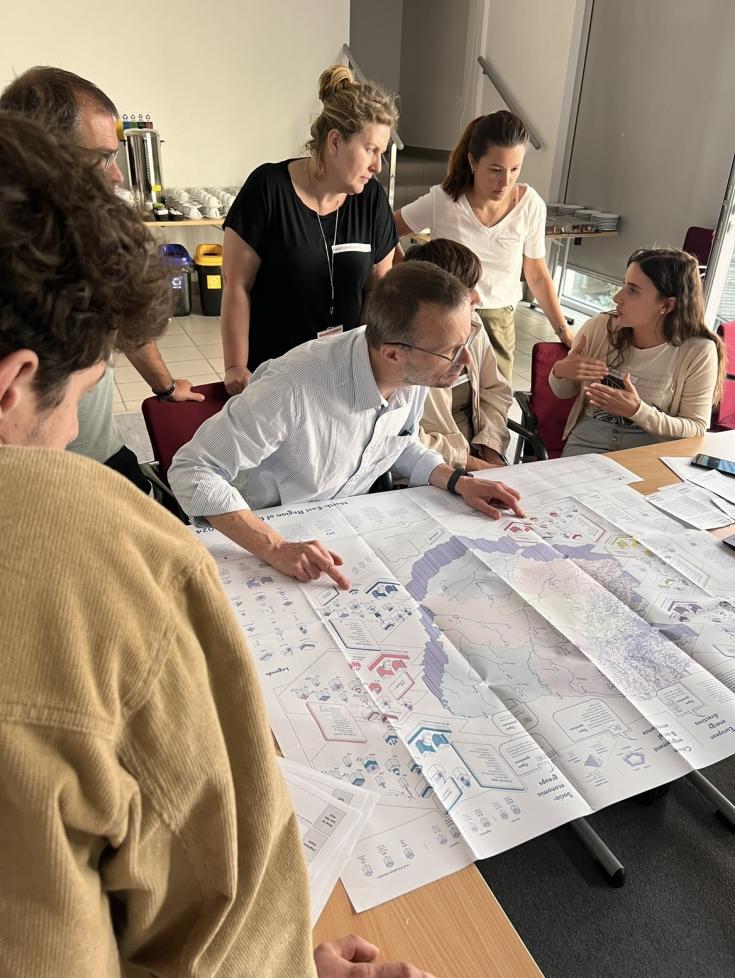Peer Reviews in the SIreNERGY Project

Peer Reviews: Enhancing Learning and Transfer in the Sirenergy Project
The Sirenergy project, supported by Interreg Europe, strengthens renewable energy use in rural areas through citizen participation and social acceptance. Peer reviews conducted in Euskadi, Blekinge, and Mazovia have been crucial in assessing and transferring best practices and proposing local improvements.
Peer Review Methodology
Developed by APESA, the peer review methodology involves rigorous collective and individual analysis. Field visits utilize a matrix to evaluate rural aspects, citizen participation, acceptance, and sustainability. Each region then analyzes observed practices in relation to their own experiences, assessing their relevance and transferability. This ensures that practices are adapted to local contexts effectively.
Conclusions from Individual Reflections
-
Rural Aspects: Rural regions face challenges like isolation and limited infrastructure. Projects such as Ispaster (Basque Country) and Zawady Biogas plant (Poland) have overcome these obstacles by leveraging local resources and community cohesion. In Blekinge (Sweden), renewable energy projects have boosted the local economy by creating jobs and new business opportunities.
-
Citizen Involvement: Community participation is essential for project success. Initiatives like Ekiola and Blekinge energy community show how involving the community facilitates project acceptance. However, barriers such as information gaps and administrative complexity can hinder participation. Effective communication, involvement in decision-making, and clear benefits to participants are crucial.
-
Acceptance: Social acceptance depends on the economic and social benefits perceived by the community. Projects like Blekinge offshore, Ispaster district heating, and Reguly kindergarten have achieved high acceptance through effective communication and early investor involvement. Maintaining open dialogue with stakeholders helps reduce opposition and build community support.
-
Sustainability: Sustainability is key, particularly in integrating renewable technologies and managing resources. Best practices minimize environmental impact and promote energy independence. Balancing energy production with agricultural needs is also important to avoid food security issues and biodiversity loss.
Group Dynamics and Final Reflection
Municipalities often lead these projects, focusing on energy independence with technologies like geothermal heat pumps and photovoltaic panels, especially in public buildings. Blekinge's experience emphasizes the importance of communication and transparency for complex projects, such as wind energy. The KEZO research center in Mazovia (Poland) illustrates how tailored research and technology testing can translate into effective local energy solutions.
In summary, Sirenergy's peer reviews have been vital for learning, adapting, and transferring renewable energy best practices. This collaborative process underscores the importance of citizen participation, sustainability, and local adaptation, paving the way for a more sustainable energy future. Future updates will continue to explore lessons learned and reaffirm Sirenergy's commitment to promoting citizen involvement in renewable energy across Europe.